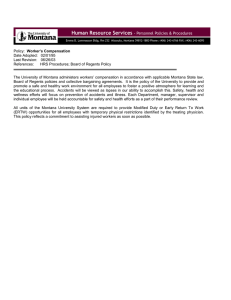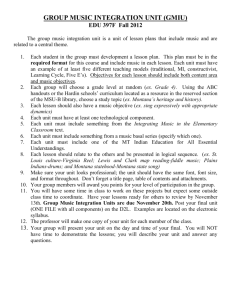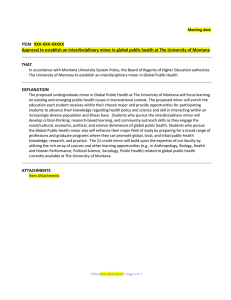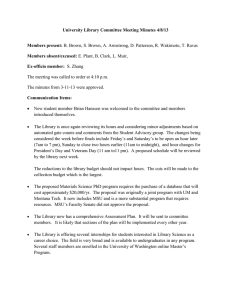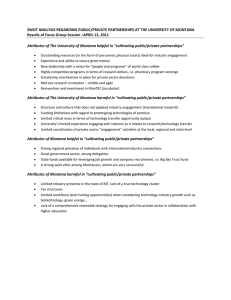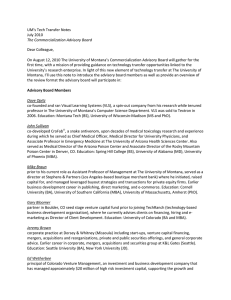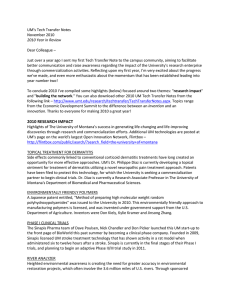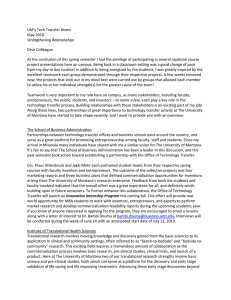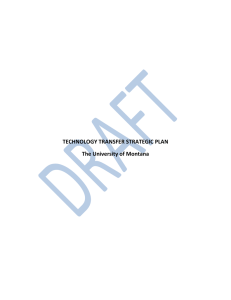UM's Tech Transfer Notes May 2012 Dear Colleague –
advertisement
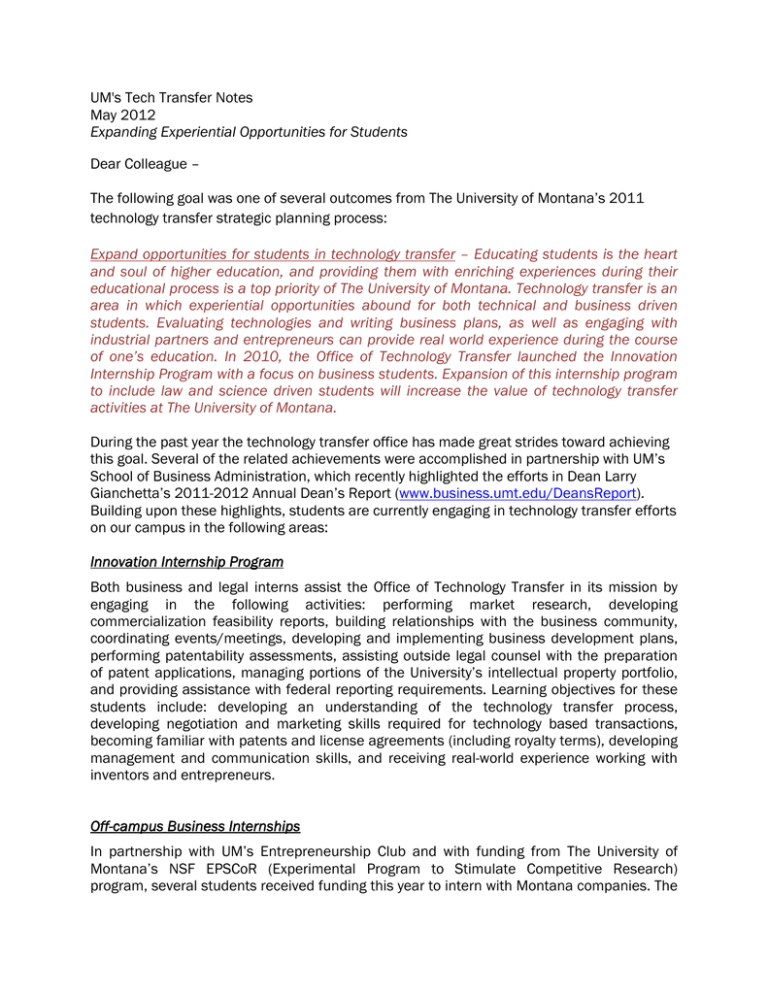
UM's Tech Transfer Notes May 2012 Expanding Experiential Opportunities for Students Dear Colleague – The following goal was one of several outcomes from The University of Montana’s 2011 technology transfer strategic planning process: Expand opportunities for students in technology transfer – Educating students is the heart and soul of higher education, and providing them with enriching experiences during their educational process is a top priority of The University of Montana. Technology transfer is an area in which experiential opportunities abound for both technical and business driven students. Evaluating technologies and writing business plans, as well as engaging with industrial partners and entrepreneurs can provide real world experience during the course of one’s education. In 2010, the Office of Technology Transfer launched the Innovation Internship Program with a focus on business students. Expansion of this internship program to include law and science driven students will increase the value of technology transfer activities at The University of Montana. During the past year the technology transfer office has made great strides toward achieving this goal. Several of the related achievements were accomplished in partnership with UM’s School of Business Administration, which recently highlighted the efforts in Dean Larry Gianchetta’s 2011-2012 Annual Dean’s Report (www.business.umt.edu/DeansReport). Building upon these highlights, students are currently engaging in technology transfer efforts on our campus in the following areas: Innovation Internship Program Both business and legal interns assist the Office of Technology Transfer in its mission by engaging in the following activities: performing market research, developing commercialization feasibility reports, building relationships with the business community, coordinating events/meetings, developing and implementing business development plans, performing patentability assessments, assisting outside legal counsel with the preparation of patent applications, managing portions of the University’s intellectual property portfolio, and providing assistance with federal reporting requirements. Learning objectives for these students include: developing an understanding of the technology transfer process, developing negotiation and marketing skills required for technology based transactions, becoming familiar with patents and license agreements (including royalty terms), developing management and communication skills, and receiving real-world experience working with inventors and entrepreneurs. Off-campus Business Internships In partnership with UM’s Entrepreneurship Club and with funding from The University of Montana’s NSF EPSCoR (Experimental Program to Stimulate Competitive Research) program, several students received funding this year to intern with Montana companies. The students self-selected their company/project, and were supported for an initial fifty hours of work (with the possibility of an additional hours). Some project highlights include: developing a website for a forest products company, establishing business development strategies for a sustainable farming effort, coordinating international client development for an “ecological” consulting business, and building a growth plan for a new organic fresh market. These opportunities have helped students enhance their classroom education by developing real world business experiences, which could lead to job opportunities. Due to the success and popularity of this effort, these technology transfer related internship opportunities will be continued into the future. Classroom Related Projects Among several successful efforts to bring technology transfer directly into the classroom, Dr. Klaus Uhlenbruck (UM School of Business Administration) provides students with an opportunity to utilize research derived technologies as part of their MBA capstone project. The course requires students to write business plans for potential ventures, and by incorporating technology transfer projects into the mix students engage at both the technical and business end of a potential “high-tech” deal. Here are a couple of technology transfer projects explored by students during the spring 2012 semester: ROC Brace (developing business launch strategy) – a UM inventor recently partnered with a physical therapist to commercialize a novel knee brace that has competitive advantages in the recreational and clinical market; Academic Planner (seeking business partners for scaling technology into the market) – UM’s central IT developed this application that allows students to plan both their upcoming semester schedule and the rest of their academic career through a web-based interface. Cancer Treatment (establishing a commercialization strategy ) – UM’s Department of Biomedical and Pharmaceutical Sciences have generated new brain cancer drug compounds that could elongate the lives of those diagnosed with cancer, and possibility completely halt the growth of brain cancer tumors. Looking to the future, joint efforts to further offer opportunities for students to engage in technology transfer will be aggressively pursued. So please let me know if you have any suggestions for the aforementioned efforts, as well as any other opportunities that might not be on the radar screen. I look forward to hearing from you! Joe. Joe Fanguy Director of Technology Transfer The University of Montana
